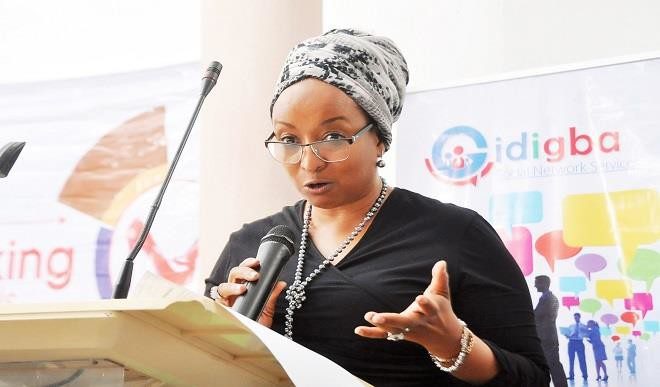The Special Adviser to President Muhammadu Buhari on Social Investments, Mrs Maryam Uwais, on Thursday, disclosed that 80 per cent of funds for Social Investments Programme (SIP) was gotten from the recovered looted funds by former Head of State, Late Gen. Sani Abacha.
Abacha was a formed dictator who died on June 1998, more than two decades after his death, more of his looted funds worth several billions of dollars were still being recovered from across the World.
Speaking further, Mrs Maryam Uwais added that the remaining 20 per cent were gotten from credit from the World Bank.
She stated this while giving a keynote address at a training and advocacy programme on tracing and recovery of illicit funds and assets in Abuja which was organised by Human Environmental Developmental Agenda supported by MacArthur Foundation and Open Society Initiative for West Africa in collaboration with Kent Law School, The Corner House, Finance Uncovered and Premium Times Centre for Investigative Journalism.
Beneficiaries of SIP
She stated that N-Power, TraderMoni, MarketMoni beneficiaries and others who benefited from the fund had been very responsive and productive, adding that they had saved about N567m.
“The funds for the social investments are from the World Bank and the Abacha loot.
“We are using the credit that we got from the World Bank in the ratio of 20:80. 80 per cent from the Abacha loot so that we can pay the beneficiaries the amount that the government has pledged to help them.
“This has been quite proactive for them because we have seen a lot of activities in the communities.
“Today many of these women are doing their business, they are trading, and engaging in agriculture. They are doing very well at their homes,” she said.
Recall that she announced a few days ago that the N-Power 2016 beneficiaries would be disengaged by the end of 2019, saying that they’re not included in the 2020 budget.
The first batch of the job initiative programme started in 2016; it was designed for two years, but the APC-led government of President Muhammadu Buhari had extended it several times in a bid to engage them in alternative ways dubbed N-Power transition Programme.


